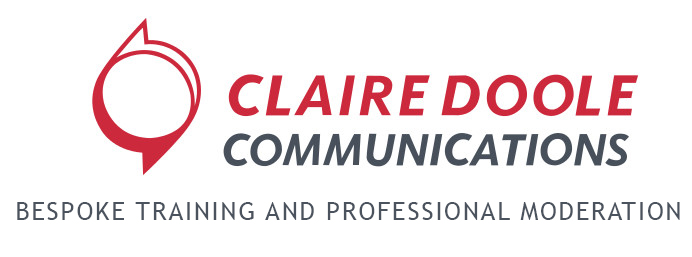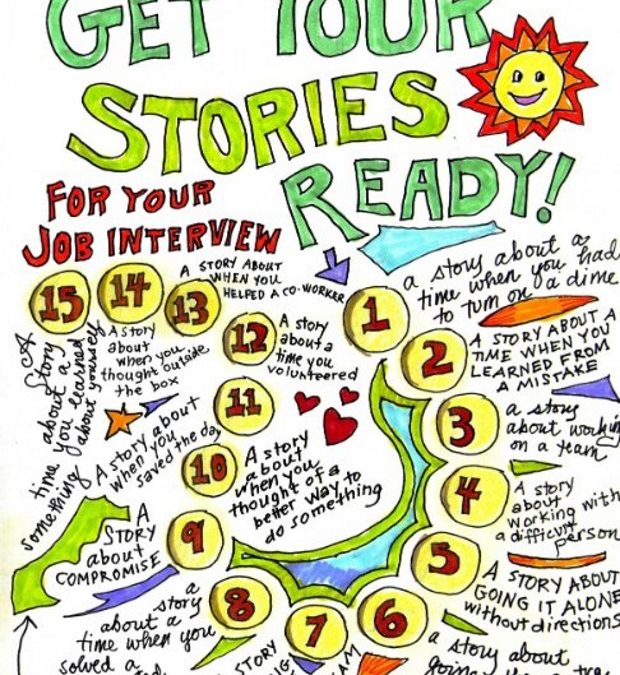In presentation training, we focus on storytelling as a way of building emotional connection with the audience. Stories win hearts and minds, inspire and motivate and engage and entertain.
In a job interview, stories can be extremely effective. They will help you stand out in the interviewer’s mind and highlight your key competencies.
Often, you will make a series of assertions such as I can help you increase sales, attract more funding or influence legislation. However, you will need to provide evidence for the interviewer to take you seriously. This is where stories, which are based on real-life examples, can help you come across as genuine and credible.
In my job interview coaching, we examine some typical questions, like the ones below, and apply storytelling techniques.
• Tell us about yourself.
• Why do you want to work for us?
• Why do you think you are the right person for this job?
• Tell us about a time you have succeeded/ failed.
• How do you deal with conflicts at work?
• Tell us what you don’t like about your current working day?
• What sort of things do you and your boss disagree about?
• What is your greatest strength and how will it help you in this job?
• What do you see as the most challenging part of this position?
As you can see, the interviewer is looking to assess your motivation, determination and spirit of collaboration. These are abstract concepts, and unfortunately the human brain is particularly bad at remembering the abstract. So you need to back them up with concrete examples or stories.
The 5 elements of a powerful story
In order to make an impact, your story needs the following elements:
1. Clear structure. You need to set out the context – explain who was involved, when, and where. There has to be some action – something has to change and then comes the resolution. In a presentation, the story serves to reinforce a key message. In a job interview, it can spotlight the actions you took to resolve a problem or challenge and the results that followed. If you can add a key learning such as – this taught me that you have to persevere and not give up – this will reinforce the impression that you are someone who reflects and learns from the past.
2. Human interest. If you are telling a story about a project or programme explain how you felt during the process. How did you feel when faced with a challenge? How did you feel when the situation was resolved either positively or negatively? And how did the people involved in the project feel – were they overjoyed, inspired or relieved?
3. Credibility. Your story must be true and based on fact. It will also be much easier to relate and remember if it is your story.
4. Topicality. If you are using a case study as one of your examples, it should still be valid and not have been overtaken by events.
5. Relevance. It helps if your story is relevant to the audience either geographically or close to the sector they are working in. For example, if you are applying for a job with a food company, but come from an environmental background, you might want to talk about an initiative you led on sustainability as this could be relevant to their policies on food waste, recycling or naturally sourced food.
And one last thought, be ready to answer some of those personality questions with stories from your non-work life. Some interviewers, for examples, like to questions such as – tell us about your childhood /what do you do outside work/tell us what makes you smile. All of these are great questions for a short personal story.
In my next blog I shall look at how to deliver that powerful story during an interview.

